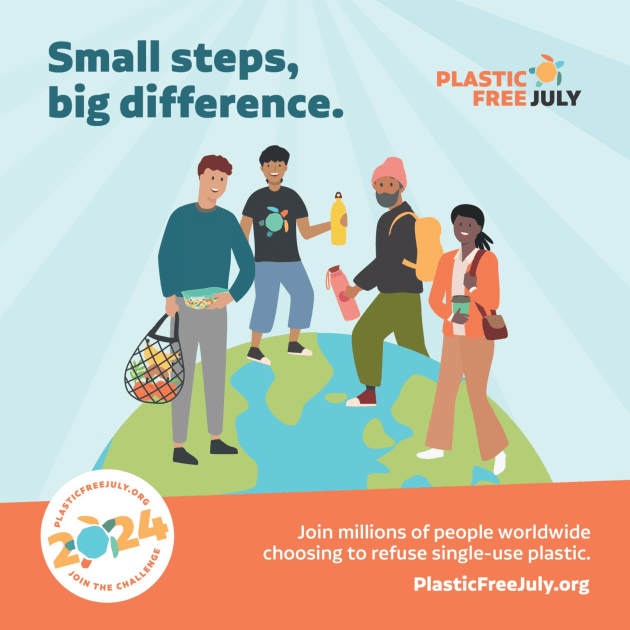This July, individuals worldwide are uniting to avoid single-use cups, plastic drink bottles, and plastic food wrap in a collective effort to combat plastic pollution. These items are the focus of this year’s Plastic Free July challenge, encouraging participants to make simple swaps and adopt new habits to significantly impact plastic waste reduction.
Last year, an estimated 89 million participants avoided 240 million kg of plastic waste. According to the United Nations Environment Programme (UNEP), around 36 per cent of all plastic produced is used in packaging, including single-use plastic products for food and beverage containers, with approximately 85 per cent ending up in landfill.
Less than 10 per cent of all plastic ever produced has been recycled; the rest remains in landfill or the environment. With United Nations plastic treaty negotiations nearing final stages, a recent survey found nearly nine in 10 people favour global rules banning plastics.
"Our throwaway culture drives the triple planetary crisis we face today. Not just the crisis of pollution and waste, but the crisis of climate change and the crisis of nature and biodiversity loss," said Inger Andersen, executive director of UNEP.
"What we produce too often ends up dumped in landfills or in the environment – directly or through leakage and burning. And we then go straight back to the source, the environment, for more, causing untold damage to the planet."
"We know that recycling and cleanup efforts aren’t enough to stop the growing amount of plastic pollution entering landfills, our environment, and ultimately the world’s oceans. We must turn off the plastics tap now, and Plastic Free July is the perfect opportunity for everyone to get involved," said Rebecca Prince-Ruiz, executive director of the Plastic Free Foundation.
"Whether that’s pledging to avoid one of the 'Top 3' or another single-use plastic in your own life, or getting a workplace involved, there are so many choices to try."
Over the past 13 years, the Plastic Free July challenge coordinated by the Foundation has activated a global social movement committed to reducing plastic waste. In the last five years alone, participants have avoided 10 billion kilograms of household waste and recycling — more than some of the world’s biggest clean-up efforts combined.
Plastic Free July is the only behaviour change campaign in the world focused on reducing plastic waste.
Prince-Ruiz emphasised that small steps can make a big difference. "We know that when people take a pledge by choosing to refuse single-use plastic, it not only helps to make new habits but people around them notice and feel inspired to do the same. This year, our message is to reassure people that this isn’t about being perfect; simply choose one item to pledge to avoid during July and give it a try. We know that when people take part for a month, new habits will be created."
From households worldwide to community groups in Australia, schools in Nepal, cafes in New Zealand, corporate offices in Europe, councils in Africa, and governors in the USA, millions of people are taking action to be part of the solution to plastic pollution.
By growing this community, working together, and supporting each other to make a change, the aim is to continue helping turn off the plastics tap.
To join the effort and pledge to go plastic-free this July, visit Plastic Free July’s website for ideas and resources.






